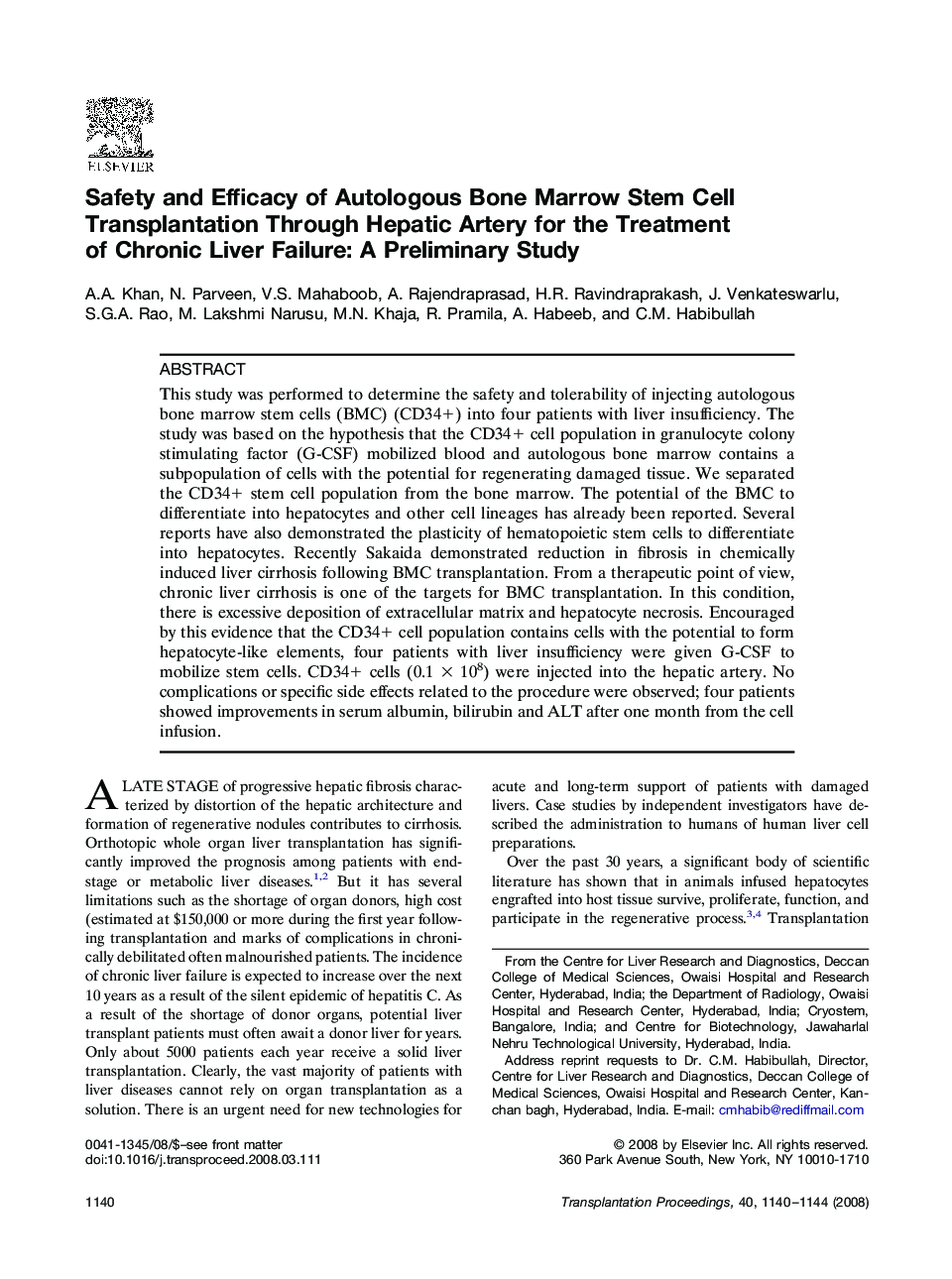| Article ID | Journal | Published Year | Pages | File Type |
|---|---|---|---|---|
| 4262126 | Transplantation Proceedings | 2008 | 5 Pages |
This study was performed to determine the safety and tolerability of injecting autologous bone marrow stem cells (BMC) (CD34+) into four patients with liver insufficiency. The study was based on the hypothesis that the CD34+ cell population in granulocyte colony stimulating factor (G-CSF) mobilized blood and autologous bone marrow contains a subpopulation of cells with the potential for regenerating damaged tissue. We separated the CD34+ stem cell population from the bone marrow. The potential of the BMC to differentiate into hepatocytes and other cell lineages has already been reported. Several reports have also demonstrated the plasticity of hematopoietic stem cells to differentiate into hepatocytes. Recently Sakaida demonstrated reduction in fibrosis in chemically induced liver cirrhosis following BMC transplantation. From a therapeutic point of view, chronic liver cirrhosis is one of the targets for BMC transplantation. In this condition, there is excessive deposition of extracellular matrix and hepatocyte necrosis. Encouraged by this evidence that the CD34+ cell population contains cells with the potential to form hepatocyte-like elements, four patients with liver insufficiency were given G-CSF to mobilize stem cells. CD34+ cells (0.1 × 108) were injected into the hepatic artery. No complications or specific side effects related to the procedure were observed; four patients showed improvements in serum albumin, bilirubin and ALT after one month from the cell infusion.
